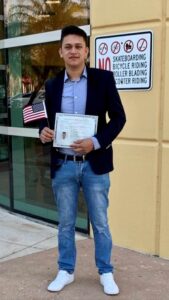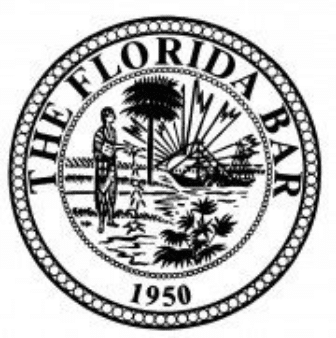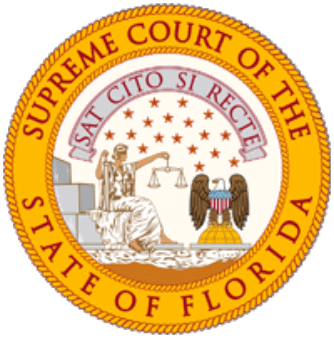After the initial shock of being diagnosed with a brain tumor subsided, Miami teen Roberto was relieved that his CABA Pro Bono Legal Services lawyers had invested so much time preparing him for adulthood.

Roberto had fled Guatemala at age 16 after years of abuse at the hands of his father. In Miami, his CABA lawyers helped him file a Special Immigrant Juvenile (SIJ) Visa. The SIJ Visa protected him in juvenile court as a child that had been abused, abandoned or neglected by a parent.
Roberto became a Legal Permanent Resident, and CABA staff helped him create a savings account, learn to pay taxes, purchase health insurance and attend night classes at Miami Dade College to learn English.
Roberto needed emergency surgery to remove his tumor, but fortunately, he had insurance. And, he had saved enough money to spend six months recovering.
Using funding from The Florida Bar Foundation’s Children’s Legal Services grant program, CABA helped 42 children receive Legal Permanent Residency and more than 100 other children like Roberto get SIJ Visas approved during the 2019-20 grant period.
CABA’s goal is to protect and safeguard vulnerable immigrant children that have been abused, abandoned and neglected by providing them with the legal representation that they need to assert their right to remain safely and legally in the U.S. CABA currently serves more than 400 children residing throughout Florida.
For their efforts, CABA will receive the 2021 Paul C. Doyle Children’s Advocacy Award at the Foundation’s annual award ceremony in June.
Without the legal services provided by CABA, the children represented would be ineligible for documents that allow them to obtain a job, a driver’s license, work permits, and a social security number. Additionally, once children obtain Legal Permanent Residency, they can qualify for financial aid and obtain higher education.
At just 23, Roberto is now a U.S. citizen and owns his own landscaping company.
On average, CABA represents each child for three to five years. To obtain an SIJ visa, CABA must first file a case in state court and obtain findings of abuse, abandonment and/or neglect.
As part of the state court process, CABA lawyers also make sure that each child has a legal caregiver that can provide complete care. Once an order is obtained in state court, CABA represents each child before U.S. Citizenship and Immigration Services and in immigration court.
Even with immigration courts being closed due to the pandemic, CABA represented more than 100 new children in 2020. Many of the children did not have legal caregivers with the necessary legal documents to consent to medical treatment on their behalf. So, CABA filed more than 50 temporary custody cases in Family Court on an emergency basis to ensure that these children had someone able to consent to their medical treatment if they got COVID-19.
CABA staff also work to make connections with community groups and the public school system, which come into contact with vulnerable children. In one instance, an elementary school principal discovered a migrant camp within his district with more than 19 families living in rustic conditions.
The camp had many undocumented children in need of legal representation. The principal informed CABA of the situation, and CABA interviewed the children and families, then provided them with free direct legal representation.
CABA also advocates for the just treatment of immigrant children within the judicial and foster care systems. CABA has developed and conducts SIJ trainings for state court juvenile, probate and family judges.
“Many of the children that we have represented throughout the years come back to our offices to report their successes,” Leslie Mendoza, CABA’s executive director, says. “One is employed by a utility company and is making over $60,000 plus benefits. He would not have been able to obtain this job without our services. Many other former clients have gone on to create small businesses within the construction industry or in landscaping, and create an economic impact by employing other individuals. Without necessary legal documents and without having become a legal permanent resident, this would not be possible.”
In December 2023, The Florida Bar Foundation changed its name to FFLA. Posts prior to this date contain our former name.




